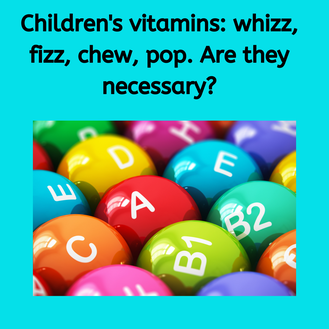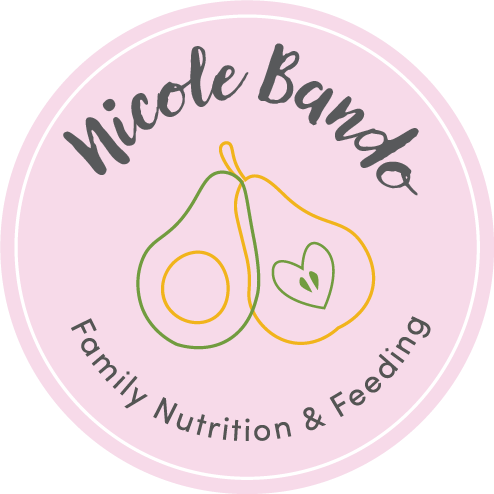Nicole Bando | Dietitian & Lactation Consultant
Search by typing & pressing enter
Search by typing & pressing enter
Search by typing & pressing enter
Nutrition and Breastfeeding Articles

‘It is hard to know what to believe with so much conflicting nutrition
information. I provide you with the latest evidence-based facts.’
Categories


By Nicole Bando, May 13, 2021
Myriad colourful, fizzy, chewable children’s vitamins line pharmacy shelves, causing parents worry that their child may be lacking in vital nutrients. As a Paediatric Dietitian & Lactation Consultant, I am often asked ‘should I give my child a multivitamin?’ In most cases, a healthy child who is eating across the food groups does not require additional supplementation. Many foods are fortified with vitamins & minerals, so your child may be consuming more of these nutrients than first considered. There is no evidence that additional vitamin and mineral supplementation benefits health. In fact, taking an excess of certain vitamins, such as fat-soluble A, D & E can have negative health effects. Fat-soluble vitamins accumulate in the body, unlike water soluble vitamins, such as Vitamins B & C, where excess is generally filtered out through the urine (N.B. there is still potential for toxicity in large quantities). For example, excessive Vitamin A in children can cause skin irritation, vomiting & an enlarged liver.
Ultimately, the best advice is to make sure that your child is receiving enough nutrition from food & supplements cannot replace the value of whole foods. If your family could do with some guidance to make sure that everyone is maximising their nutrition potential, see a family dietitian.
In certain cases, vitamin supplements are necessary, such as:
- Vitamin D deficiency (darker skin, inadequate exposure to sunlight, exclusively breastfed babies)
- Iron deficiency, which may occur in extremely fussy eating or vegan/vegetarian diets
- Vegan/vegetarian diets
- Certain diseases which may reduce absorption of nutrients
- Multiple allergies, where whole food groups can be excluded
- Slowed growth
- If needed, a blood test can show if there is a deficiency in certain nutrients (e.g. iron, Vitamin D).
Your dietitian or paediatrician will advise if this is the case. Products are roughly categorised into multivitamin preparations, single nutrients (e.g. iron), probiotics and then marketing categories, such as ‘immune boosting’ or ‘brain development’. Here’s a brief overview of a few popular multivitamins:
- Centrum Kids & Swisse Children’s Multi: if needed, these are both good multivitamin options that give a general coverage of key nutrients, including small amounts iron, zinc and negligible calcium. Centrum Kids contains Vitamin A in excess of the recommended daily intake for children (RDI). Swisse Children’s Multi contains a large proportion of the RDI.
- Blackmores Super Kids Multigummies: Mostly B vitamins, small amount of zinc & iodine. No iron, calcium or Vitamin A. Sugar-free.
- Nature’s Way Vita Gummies: B vitamins, Vitamin A close to RDI. Small amount Vitamin D, some E. No calcium, iron, zinc. Most children get enough B vitamins, so these vitamins would generally be lost in urine. Contain sugar.
What’s the bottom line?
Unless your child fits into one of the above categories, or you have concerns that their diet may be inadequate, a multivitamin is likely not necessary. Seek professional guidance.
Acknowledgements:
Rodney Whyte, Senior Pharmacist, Monash Health
Sources:
NHMRC, Nutrient Reference Values for Australia and New Zealand
Royal Children’s Hospital, Vitamin A: https://www.rch.org.au/immigranthealth/clinical/Vitamin_A/
Dr Anthea Rhodes, RCH Paediatrician & Director, Australian Health Poll https://blogs.rch.org.au/news/2016/09/13/blog-vitamins-and-kids-do-they-really-need-them/
